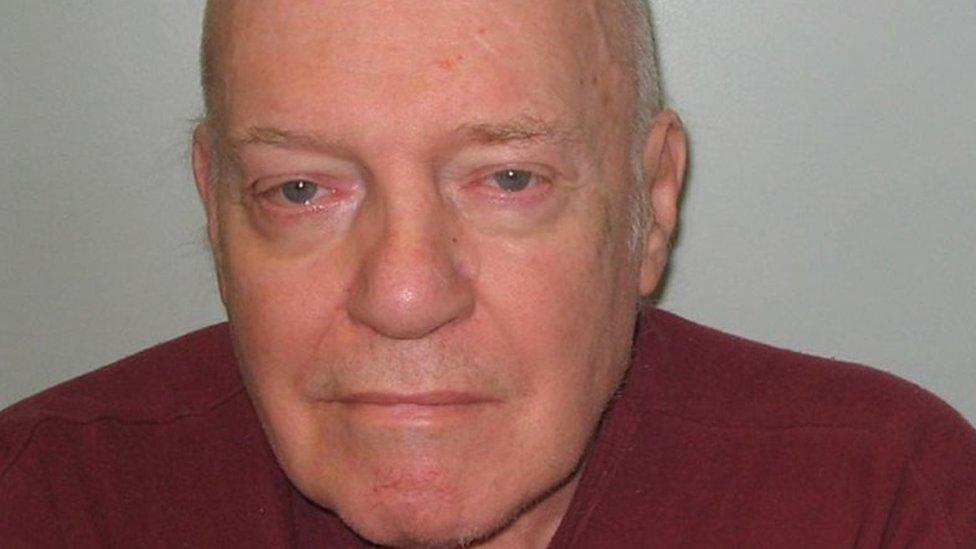Ex-BBC DJ Chris Denning jailed for child sex offences
- Published

Former BBC DJ Chris Denning has been jailed for 13 years after admitting abusing 11 boys as young as eight.
Denning, 75, of London, is currently in prison for child sexual offences. He pleaded guilty in August to 21 further counts committed between 1969 and 1986.
Denning was arrested after a police inquiry into the Walton Hop Disco in Walton-on-Thames, Surrey.
He was part of the original line-up of disc jockeys that launched BBC Radio 1 in 1967, but left two years later.
Denning is already serving a 13-year jail term for sexual assaults against 24 victims, aged nine to 16, which took place from the 1960s to 1980s.
Judge Alistair McCreath said the effect on the victims, now grown men, has been "devastating".
He described the offences as "utterly depraved", and added: "It is not to be forgotten that all of this suffering was inflicted by you for nothing other than your own selfish pleasure."
'Used your fame'
The jury at Southwark Crown Court heard Denning lured boys into his house using his fame and plied them with records, alcohol and cigarettes.
He showed them pornography before forcing them to perform sex acts on him and photographed them naked, prosecutor Jonathan Polnay told the court.
On several occasions he took some of the boys to London and introduced them to other celebrities, including Gary Glitter, Mr Polnay added.
The prosecutor also said Denning had offered one of his victims to another Radio One DJ, who had refused.
He also took one of the victims to the Walton Hop Disco, which ran from 1958 until 2001, the jury heard.
Judge McCreath said the latest sentence would start from Friday.
He told the defendant: "You groomed all of these boys. They were for the most part in their early teens, although some were younger.
"You used your own fame, your acquaintance with others who were famous, your familiarity with the music industry... to win their trust and misplaced admiration."
David Burgess, defending, said Denning suffers from "various ailments" and may die before the end of his sentence.
He added: "His past has caught up with him - we are talking about events over 40 years ago.
"He is very sorry, he has expressed that before."